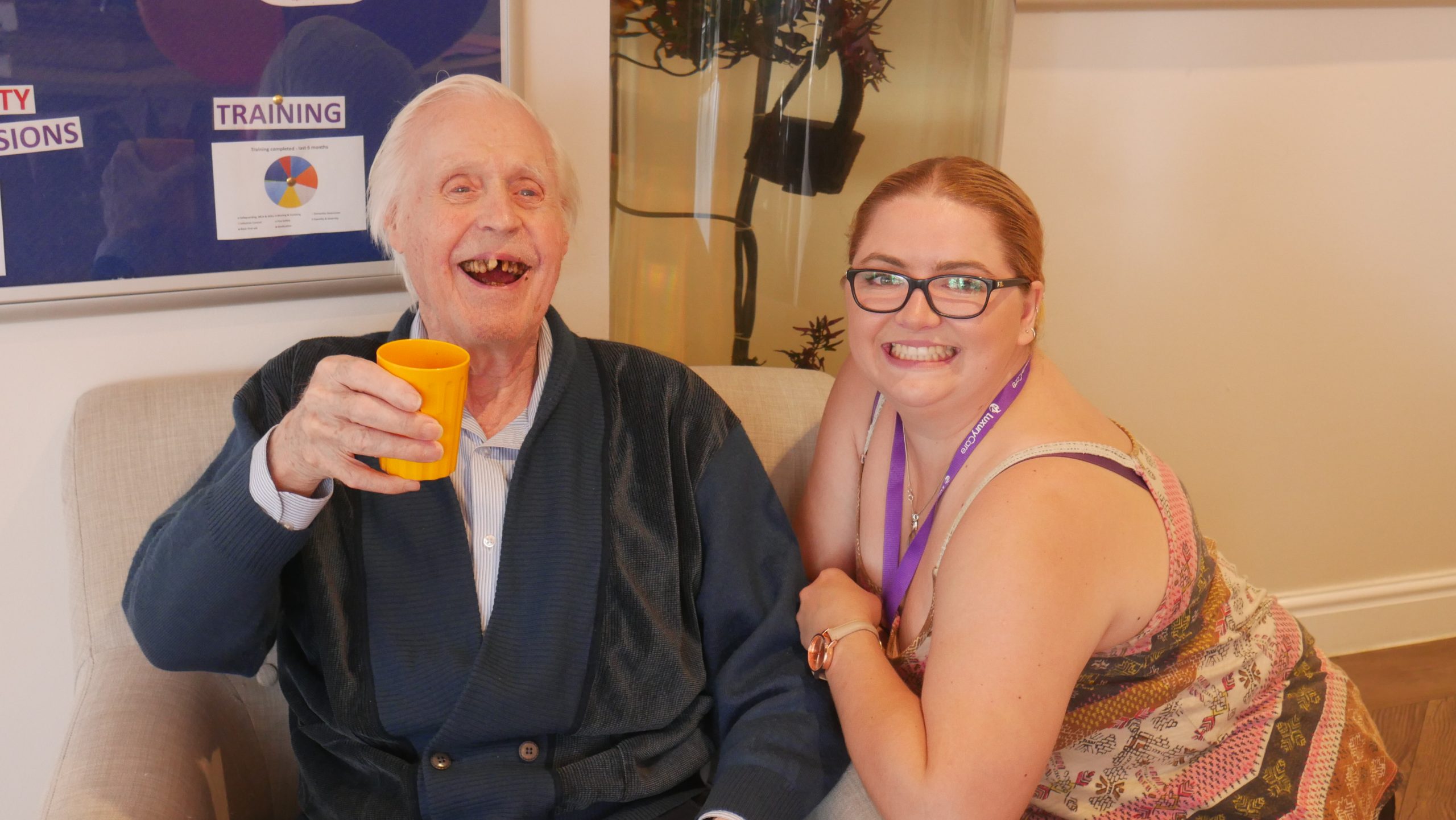Just like any other muscle in your body, you need to exercise your brain to retain its ability. The difference in working your brain is that you aren’t working to increase or keep strength. Instead, you are stimulating it to improve or sustain memory and cognitive function.
The older you get, the more important this can get, especially if your loved one is diagnosed with dementia. Many types of dementia will impact memory, but the deterioration process can be slowed down with a plan.
LuxuryCare homes specialise in dementia care, so we have seen the difference memory care can make to those suffering from memory loss and living with dementia.
In this blog, we share some techniques and tips to help exercise memory and cognitive functions for effective memory care.
Understanding Dementia
Dementia is an umbrella term to describe a number of diseases that affect cognitive functions such as remembering, thinking and deciding.
There are several forms of dementia, each of which has varying symptoms and impacts the person differently:
- Alzheimer’s
- Vascular dementia
- Lewy body dementia
- Frontotemporal dementia
- Parkinson’s
- Huntington’s Disease
While each type of dementia will present differently, they can often share early symptoms:
- Memory loss
- Shortened attention span
- Reduced communication
- Inability to finish simple, everyday tasks
Over time, these symptoms will worsen, impacting their quality of life and ability to live independently.
So, what can you do to care for your loved ones’ memory?
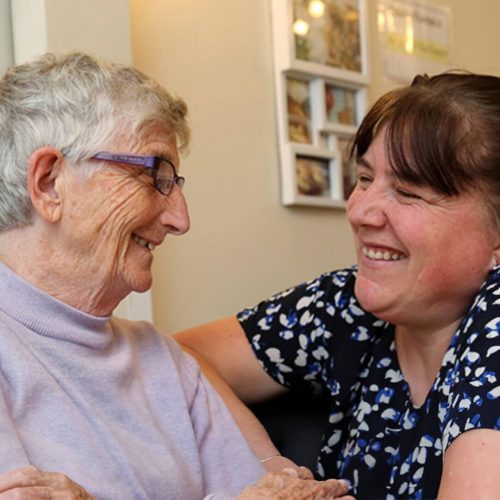
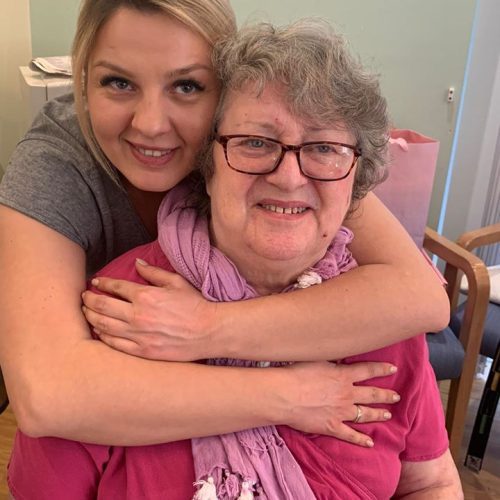
Creating a Safe and Comfortable Environment
Creating a safe and comfortable environment is an especially important part of memory care for those living with dementia.
A simple technique to keep the brain active and memories present is to personalise your environment. Whether in a care home or at home, make sure your loved one is surrounded by familiar furniture and items, as these ensure comfort and can often trigger memories.
Another way to keep memories fresh in their minds is to put photos up around the place so they have visual reminders of special memories.
Routines will often help your loved one feel safe and comfortable, as they will feel sure about their day at a time when they feel uncertain about most other things. Maintaining a schedule will help them feel relaxed so they can focus on memories rather than the stress of present situations.
Effective Communication Techniques
Communication underpins every interaction and relationship, but it can get more difficult as your loved one gets older or their dementia progresses.
Effective communication will be important in helping your loved one. To achieve this, you should use simple and clear language, as this will minimise confusion and enhance understanding.
Use short sentences and give concise instructions. Don’t bombard them with information, as they won’t understand it all, and this could cause confusion and frustration. A short instruction will enable them to do the task for themselves, potentially making them think about it and stimulating their brain.
Of course, nonverbal communication is just as important as the words you speak. Body language, facial expressions and gestures will help your communication. Make sure you hold an open body position to seem friendly and approachable. Lean in to show you are engaged with your loved one.
Smile and make eye contact to match your friendly body language, and use gestures to reinforce what you are saying. These can be taken as cues, which further allow them to complete the task for themselves.
Finally, communication is as much about listening as it is about talking. Make sure you are an active listener in an interaction by affirming you understand what they are saying, acknowledging their feelings and reducing distractions around you.
Good communication will build trust and create positive interactions between you both. It can also help to reduce confusion and anxiety while enhancing their sense of connection and understanding so that they can perform tasks themselves, enabling them to think for themselves where possible.
Engaging Activities
Of course, engaging in activities will stimulate the brain, making it work to slow down the progression of dementia and memory loss.
Tasks such as doing a puzzle, memory games, such as finding the matching pairs, and reading all help cognitive simulation, exercising the brain just like any other muscle.
It has also been proven that music and animal therapies, as well as arts and crafts, can positively impact the progression of dementia and memory loss, improving moods and triggering memories.
Regular physical activities have a big impact on mental well-being. Simple exercise, such as a stroll around the garden or along the beach, can significantly improve physical and mental well-being.
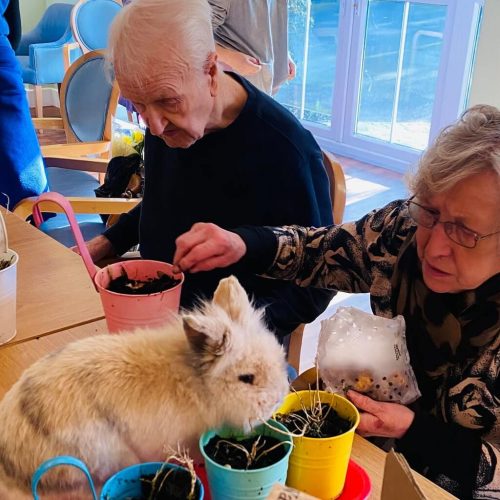
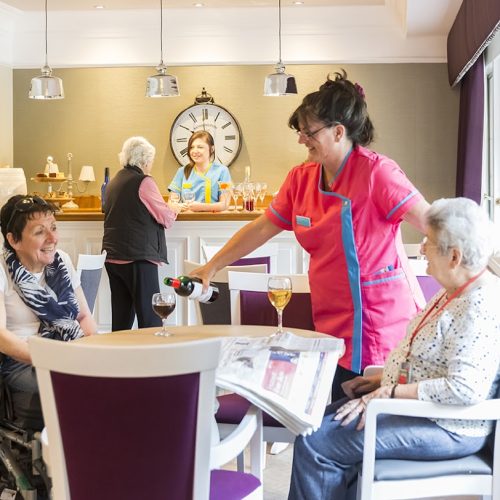
Nutrition and Hydration
Nutrition and hydration are key to our mental health, and this is no more so true for those living with dementia.
Hydration impacts your brain function no matter what your age, but those with dementia often forget to drink. So, where possible, you might need to remind your loved one to have a drink.
Additionally, the food your loved one eats will feed the brain so a balanced diet will improve their health and cognitive functions.
Technology In Memory Care
Technology is a wonderful thing and can be incredibly useful in memory care.
You can use everyday technology as part of memory care; from a tablet to store photos, a smart display screen to display images in your loved one’s space to utilising speakers for music therapy or downloading special apps onto phones, tablets or computers.
There is plenty of technology available to aid in memory care.

Memory Care at LuxuryCare
Our care homes in Poole and Bournemouth are specialists in dementia care and work with residents and loved ones to make sure we cater to the ever-changing needs of the disease.
Our bespoke care plans incorporate memory care as a core part of your loved one’s care, no matter whether they are receiving dementia support, residential care, nursing care or respite care.
Our activities are designed to engage and stimulate each of our residents and are adapted to suit their abilities. We encourage everyone in our homes to participate in the ones they are interested in, enabling them to socialise with other residents to reduce their loneliness.
We also organise day trips as part of the memory care, taking residents to museums, local amenities and walks along the beach or pier, often finding that these places trigger memories which our staff love to hear.
Finally, we have in-house chefs who can cater to individual preferences and dietary needs, using fresh and local ingredients for nutritious meals each day. Our kitchen staff are trained to understand the unique challenges faced by those living with dementia, so amend each meal to be suitable for our residents. This could be through cooking things so they are softer and easier to chew or simply cutting them down into smaller sizes.
We are passionate about not just providing care but also a quality of life that your loved one is proud of at our homes.
Get in touch with us today to learn more about our dementia care and to discuss tips and techniques for memory care for your loved one. Call us on 01202 037373 or complete our contact form to request a callback.













